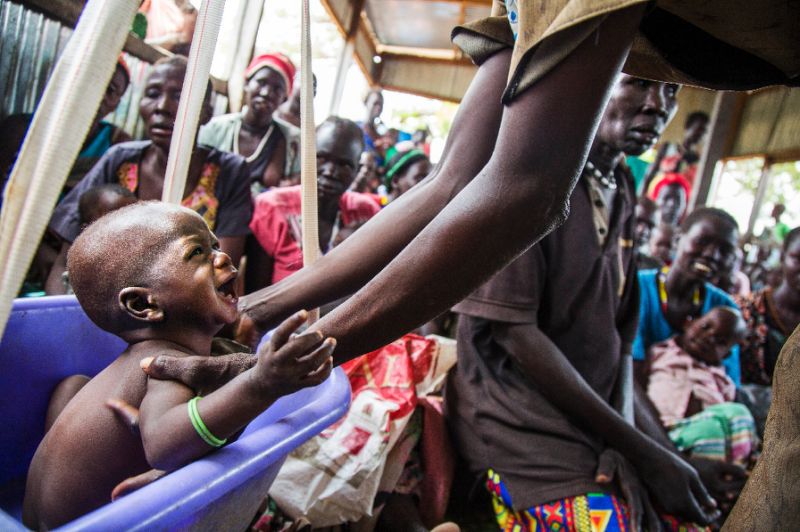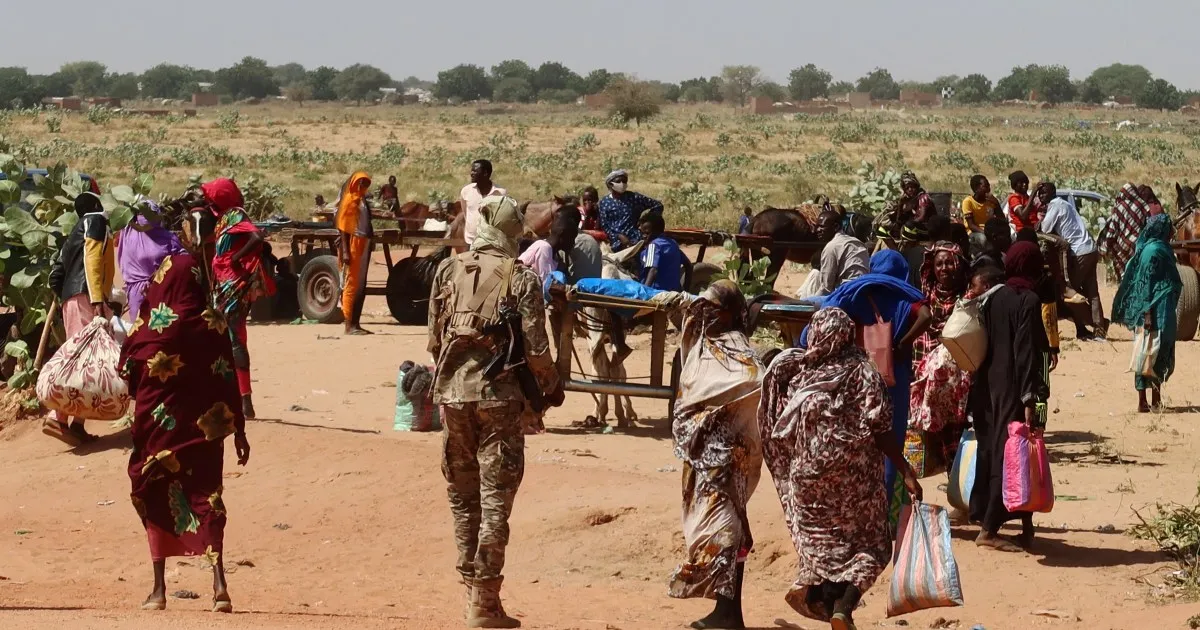Children in South Sudan are dying from cholera as they trek for miles in search of medical help, only to find that vital health clinics have been closed following cuts to US aid, an international non-governmental organization warned on Wednesday.
Since gaining independence in 2011, the poverty-stricken nation has struggled with ongoing insecurity. Recent outbreaks of violence have further jeopardized a fragile peace agreement that brought an end to its brutal five-year civil war.
Now, South Sudan faces a worsening cholera crisis. According to UNICEF, nearly 40,000 cases have been reported since September, marking the most severe outbreak in the country’s short history.
On Wednesday, the UK-based charity Save the Children revealed that at least five children had died in eastern Jonglei state while walking for hours in desperate attempts to reach medical care.
Save the Children previously supported 27 health clinics in eastern Akobo County. However, due to cuts in funding from the United States Agency for International Development (USAID), seven of those clinics have been permanently closed. The remaining 20 are only operating on a limited basis.
The charity also disclosed that it had been forced to lay off around 200 staff members from its nearly 600-strong workforce across the country.
Cuts to USAID — whose $43 billion annual budget accounts for roughly 40 percent of global humanitarian aid — were initiated under former US President Donald Trump. The impact of those reductions is being felt in crisis zones worldwide.

“We used to be happy –- there were many doctors and enough medicine. We did not suffer much. But we are now suffering,” said Sarah, a 24-year-old cholera patient in Jonglei, who gave only her first name to the charity.
Volunteer health worker Michael said the funding cuts had left local communities without essential medication.
“We see patients suffering, and we can’t help,” he said.
“Now there is a serious cholera outbreak,” Michael added, explaining that health workers could offer little more than oral rehydration salts to those afflicted.
The warning comes as UNICEF reported that between September and March, nearly 700 cholera-related deaths were recorded, with children under the age of 15 accounting for half of the cases.
Out of South Sudan’s 10 states, nine have been affected by the outbreak — with eastern Jonglei being the hardest hit, according to UNICEF.
“It’s so heartbreaking to think about the situation in those areas, because what I saw was something out of a dystopian world,” Save the Children’s country director Chris Nyamandi told AFP.
He described visiting eastern Akobo in Jonglei, where sick children lay beneath trees for lack of space in overcrowded medical tents.
“There should be global moral outrage that the decisions made by powerful people in other countries have led to child deaths in just a matter of weeks,” Nyamandi said in a statement.
He urged the international community to pay attention to the “humanitarian catastrophe unfolding in South Sudan –- a country where four out of five people need aid to survive.”
Nyamandi stressed that a priority must be preventing further violence in South Sudan, warning that renewed conflict would only deepen the health crisis and make medical care even harder to access.
Parts of the country have already seen renewed waves of violence in recent weeks, with clashes breaking out in multiple regions.


 Trending
Trending 